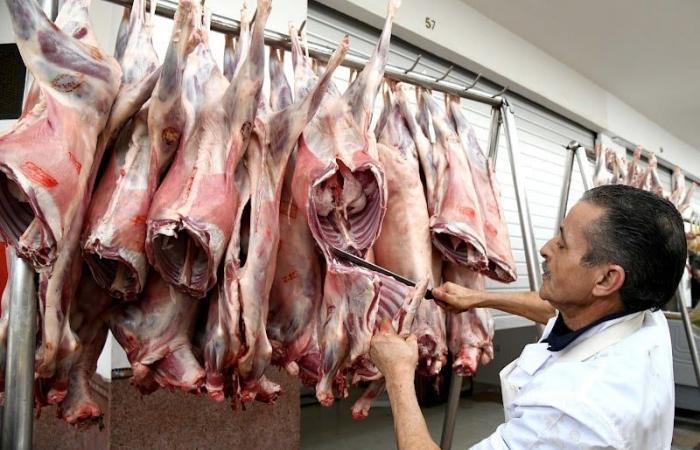Despite the announced arrival of shipments of imported red meat in Morocco, many traders in local markets say they have not yet benefited from it. A situation which, according to them, explains why “ prices have not fallen and remain unchanged ».
In the cities of Fez, Casablanca and Salé, professional sources confirm that the price of lamb remains at 140 dirhams per kilogram, while that of beef remains at 110 dirhams. These prices, stable despite promises, reflect difficulties in the distribution and storage of cargo.
« Prices remain stable, with the exception of a few rare stores where the price of imported meat is around 80 dirhams », Indicate sources in the sector. This exception is explained by “ the limited quantity of imported meat and persistent storage problems », a major obstacle to a generalized drop in prices.
In Fez, Mohammed, a red meat trader, expresses his skepticism about this initiative. “ Prices have not fallen because we still have not received any shipments of imported meat », he declares to Hespress. He also highlights the risks associated with the sale of these products: “ The sale of these meats represents a certain risk due to the obligation to sell them quickly, to prevent them from deteriorating, which is not guaranteed. ».
The trader points out an inequality in distribution: “ Many small traders in Fez’s popular markets have not received these new shipments of imported meat. Only a few large traders have benefited from them and sell them at prices not exceeding 80 dirhams. ».
In Salé, Ahmed, another trader, shares a similar observation. He confirms to Hespress that the imported meats have still not arrived in its slaughterhouses. “ Prices remain at their usual levels, although higher than in Fez: 150 dirhams for a kilogram of lamb, and 110 dirhams for beef. “, he specifies.
In the Casablanca-Settat region, the situation is just as complex. According to Hicham Jawabri, regional secretary of wholesale red meat traders, “ the absence of a drop in prices in the majority of Moroccan markets, particularly in Casablanca, is linked to storage problems and the lack of authorizations issued by the city’s mayor ».
Jawabri specifies that “ only three trucks carrying these meats arrived in Casablanca, and only one was transported to Fez “. This low availability, combined with limited storage capacity – “ three trucks maximum in Casablanca » – makes any significant drop in prices almost impossible.
The rare declines observed only concern “ some stores in Casablanca “, while they remain non-existent in most other cities in the Kingdom, according to Jawabri.
Finally, he warns of the repercussions of logistical problems: “ The persistence of storage problems and their impact on the quantity of imported red meat available risks maintaining this critical situation.. »
Thus, the arrival of shipments of imported meat, supposed to ease tensions on the market, is struggling to produce the expected effects. Between uneven distribution and logistical challenges, traders and consumers are still waiting for concrete results.






